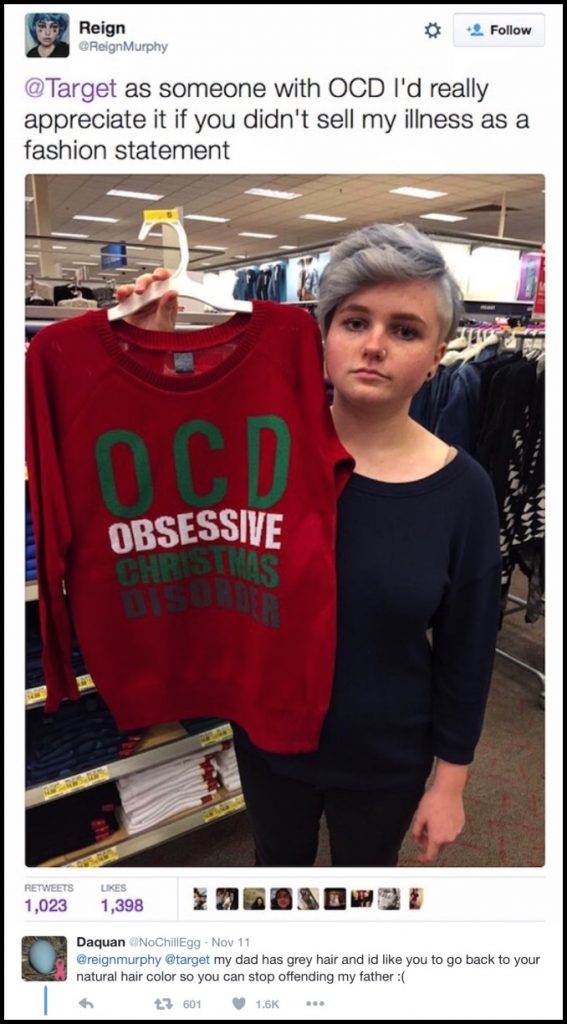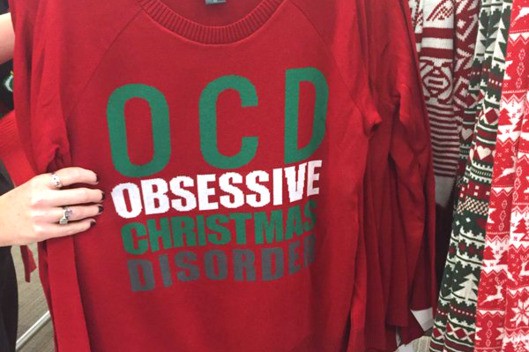In a world where corporate giants seem invincible, individuals like Richard Durkin, who won a 16-year battle against HFC bank, inspire us to speak up. Recently, a woman’s social media post sparked a debate about a controversial sweater design at Target, one of the largest US clothing stores.

Reign Murphy shared her concerns on Twitter about a sweater with the phrase “OCD Obsessive Christmas Disorder,” which she felt trivialized a serious psychological condition affecting 2.2 million Americans. While some people with OCD found it humorous, others shared Reign’s outrage.

The incident highlights the power of consumer voices in shaping brand decisions. Target apologized for any offense caused, but chose to keep the sweater on shelves, emphasizing its intention was not to harm.

This episode echoes another woman’s objection to t-shirts with labels like “bride,” “trophy,” and “Mrs.,” which she saw as objectifying women. Her concern raises questions about the impact of language on our perceptions.
These stories demonstrate that individual voices can spark meaningful conversations and influence brand actions. By speaking up, we can create a more empathetic and responsible consumer culture.
